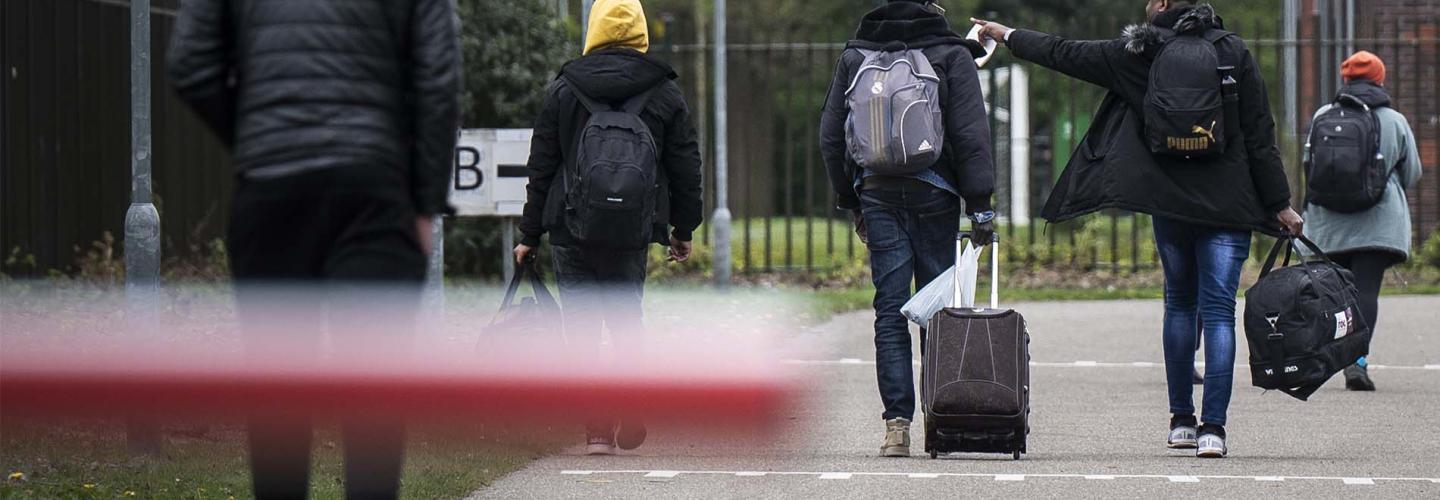Two types of penalties
The IND has to deal with two types of penalties: administrative and judicial penalties. For the asylum procedure, we are only paying judicial penalties as of 2020. For other applications than asylum, we do pay administrative and judicial penalties when we decide too late.
Default notice and administrative fine
The legal decision period is different for each application. If the decision period has lapsed and the IND has not made a decision yet, the applicant can put the IND into default. This means that this person asks the IND to still reach a decision within two weeks. For example with the form on ind.nl. The IND then has two more weeks to decide. If this does not happen, the IND must pay an administrative fine for each day that the decision is late, up to a total amount of € 1,442. This administrative fine does not apply to the asylum procedure. But someone applying for asylum can put the IND into default. After all, this is a condition to then start the process for the judicial penalty, if necessary.
Judicial penalty
If the IND does not decide within two weeks after the notice of default, an applicant can appeal to the court. This is called a ‘appeal against failure to give a timely decision’. The court then determines within which period the IND must still make a decision. For asylum applications, this is usually eight weeks to plan an interview and then another eight weeks to reach a decision. And if the IND fails to comply with this period? Then the court will order us to pay a penalty. This is a judicial penalty. This penalty is usually € 100 per day, with a maximum of € 7,500. Sometimes the judge imposes a shorter decision period or a higher penalty.
Increasingly higher amounts and more time for penalties
For quite a while, the IND has been receiving more applications than the number the organisation is equipped for. This means that applicants have to wait increasingly longer. The number of cases that cannot be decided within the decision period is expected to increase. The result: the IND will spend more time and money on processing penalties.
Temporarily no penalties for asylum
In 2020, the cabinet passed the ‘Interim Act on the Suspension of Periodic Penalty Payments’. This temporary law made it possible that the IND did not get an administrative or judicial penalty if we did not decide on an asylum application within the legal decision period. The idea behind the law: the costs for penalties become lower and the IND is given time to clear its backlog. At the end of 2022, the Council of State ruled that it must be possible to impose a judicial fine in asylum cases. An asylum seeker must be able to use this remedy to induce the IND to take a decision in time. Abolishing the administrative fine was allowed according to the Council of State.
Temporary longer decision period
Sometimes, the IND can extend the decision period. It will then take longer before an applicant gets clarity from the IND. This happens, for example, if the IND needs more information from the applicant. Or if further investigation is needed. It is also possible to extend the decision period for a group of applicants at once. The Minister for Migration decided to extend the decision period for asylum applications, which normally is 6 months, to 15 months up until 31 December 2024. Because there was an unexpectedly high number of asylum applications in a short period, the IND is unable to process them within the period of 6 months.
Penalties according to the IND
A well-founded decision takes time and the number of applications has been high for a longer period. Because of this, the IND is not always able to provide clarity within the legal period. Penalties do not contribute to the IND taking faster decisions. Because it is not that we do not want to decide on time: we are unable to. In addition, processing default notices and appeals against late decisions takes up time of staff. The IND is unable to use that time to process new applications.
Penalties 2024
In 2024 the IND paid 36.8 million euros in penalty payments, in the whole of 2023 this was 11.3 million euros. The number of asylum applications has been much higher for a longer time than what the IND can process. The waiting times for applicants are increasing, and with that also the amount in penalty payments. We expect that this will increase more and more in the next few years.



